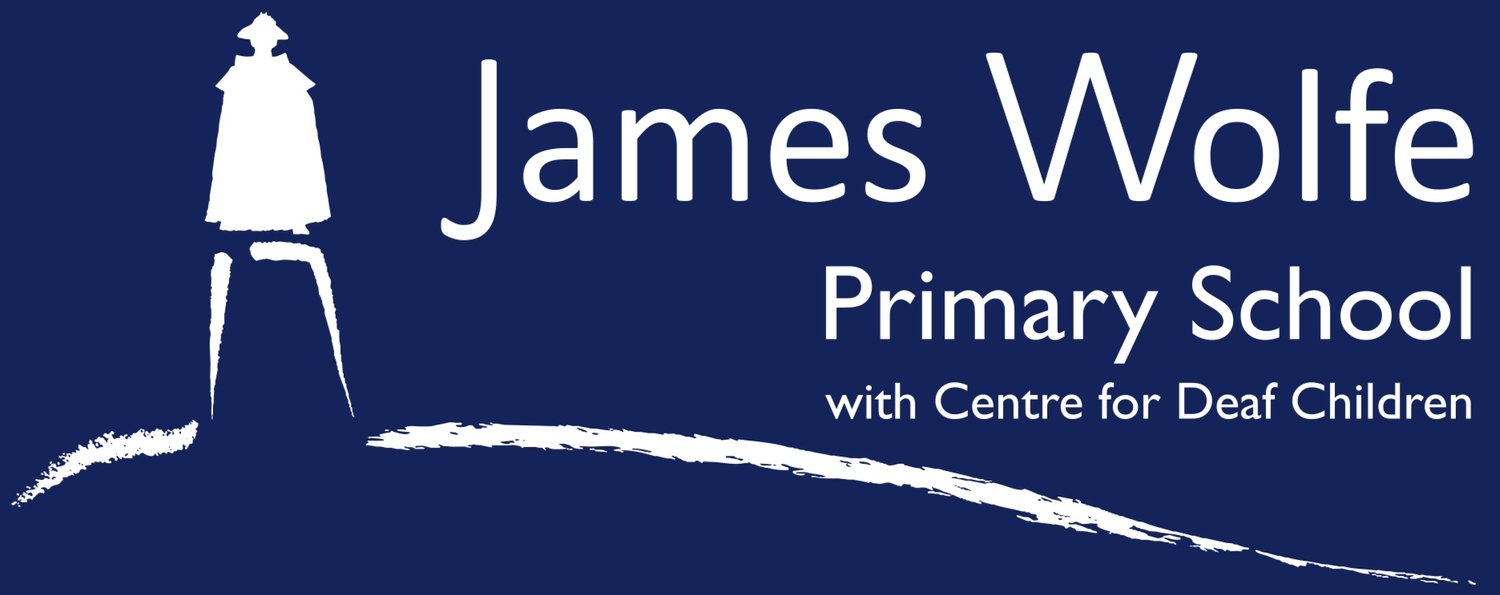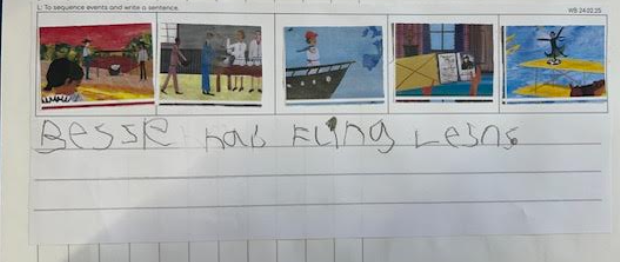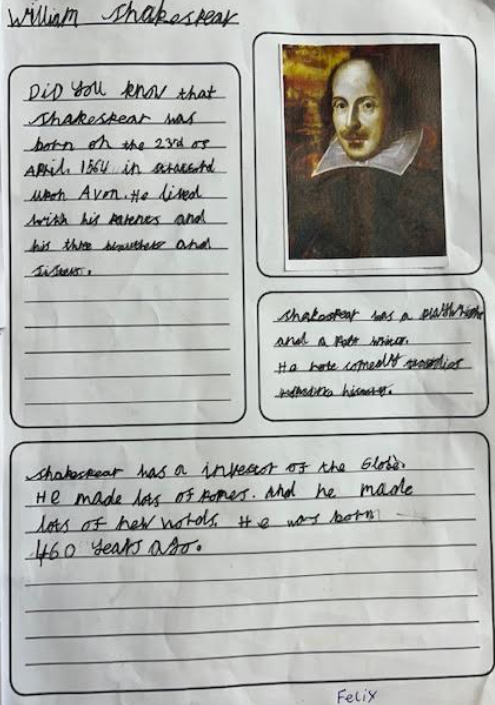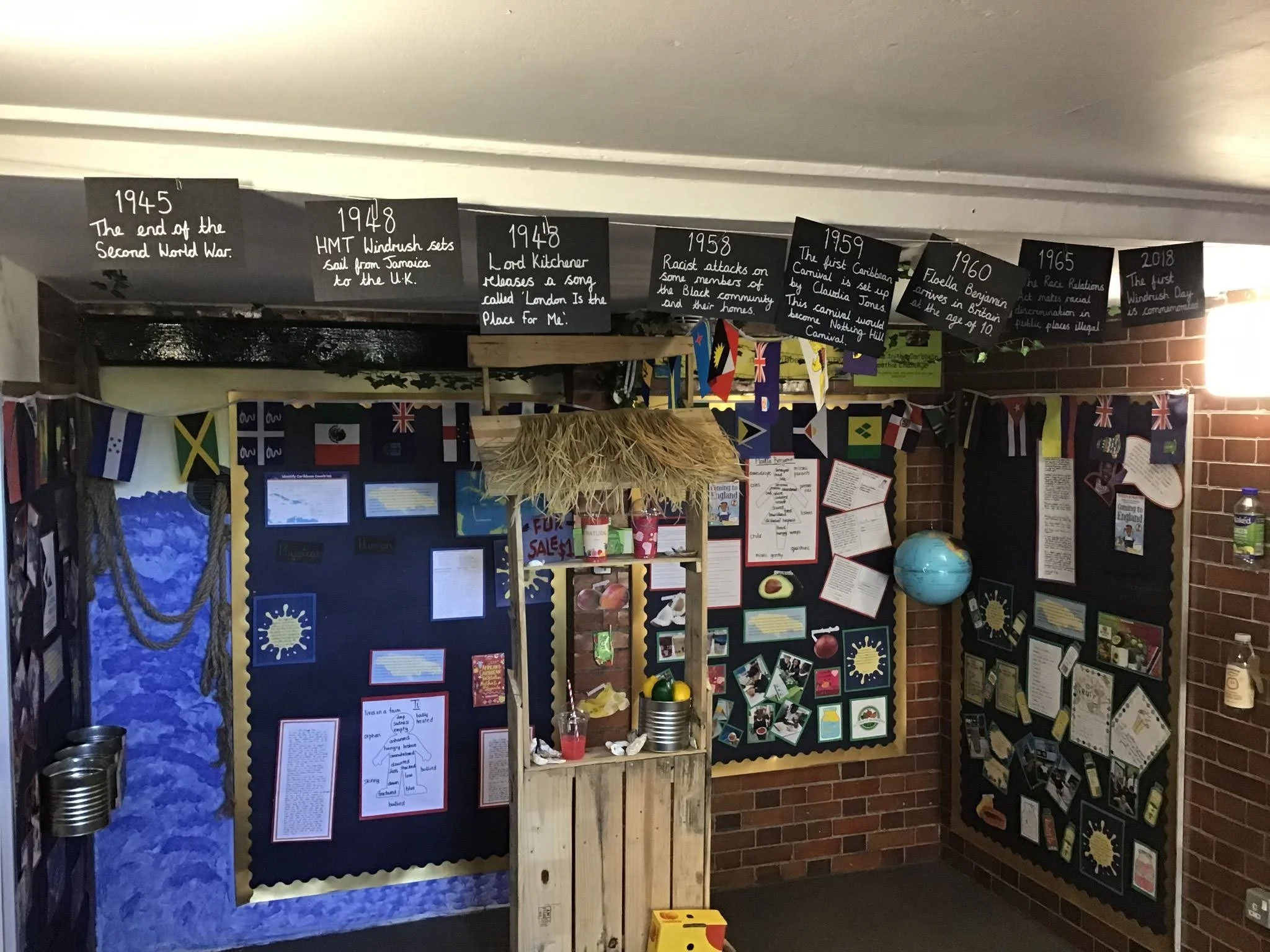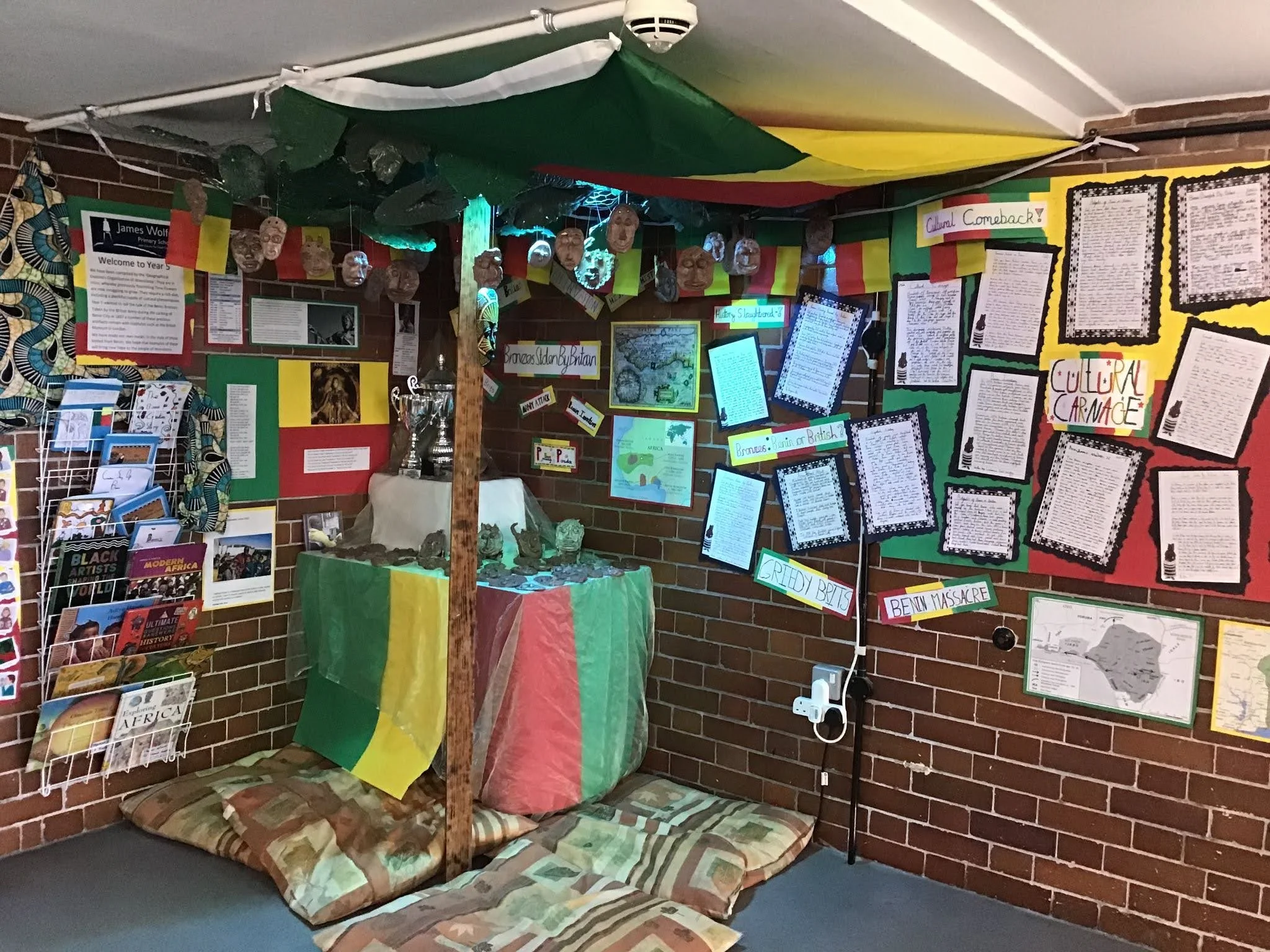Migration, Legacy, Culture
In the evidence below, consequences of historical events have been challenged by our pupils, eager to demonstrate the breadth of their concern and asking important questions about events. Through immersion into primary sources, external visits and independent research, there is a natural progression in our pupils’ understanding of cause and consequence, and common misconceptions have been debated, with pupils developing powerful causal explanations.
Women Soaring High - EYFS
Reception children explored the wider world through the unit Where in the World?, linking to the whole-school history focus on Cause and Consequence. Building on previous local learning, they studied the sky and space, and learned about pioneering female pilots Amelia Earhart and Bessie Coleman. Children discovered what these figures achieved and why they were significant. They sequenced key events in Coleman’s and Earhart’s lives, developing early chronological understanding. Through stories and discussion, children recognised simple causes and consequences, such as how determination led to major accomplishments. The unit also introduced diversity and aspiration through real historical figures.
The Bard and Beyond - KS1
In Spring, Year 2 explored the life and legacy of William Shakespeare, linking to the whole-school focus on Cause and Consequence. Children investigated how Shakespeare’s work continues to influence language and theatre today. They created fact files about his life, discovering key facts such as his invention of new words and his role as an investor in the Globe Theatre. This work supported their understanding of how individual achievements can have lasting cultural impact. The unit was closely linked to English, where pupils summarised A Midsummer Night’s Dream, further deepening their understanding of Shakespeare’s influence and encouraging cross-curricular connections in learning.
Roots That Rebuilt - LKS1
BodyA project pertaining to collecting, preserving and celebrating people of African and Caribbean descent, has resulted in Y4 pupils understanding the major concept of migration. They have inquired how the Windrush generation changed British life, rebuilding the economy and enriching its diversity. During a visit to Brixton Windrush Museum, pupils delved into the history of HMT Empire Windrush and its symbolism of the wider mass-migration movement. Pupils learnt how people were invited to the UK to help rebuild post-war labour shortages, which prompted reflection on how they built their lives. Parallel to this, pupils learnt of how Floella Benjamin’s historical roots inform her advocacy and public service.
The Looting of Legacies - UKS2
Thoughtful enquiry-based learning has deepened Y5’s understanding of the development of the Kingdom of Benin. Focusing on the looting of the Benin bronzes, they examined the global dispersal of these artefacts, engaging in rigorous debate to explore moral and historical issues and to consider whether they should be repatriated in light of the colonial contexts in which they were taken. Whilst exploring the origins and expansion of ancient Benin, pupils investigated the political structures, influential rulers and cultural traditions, reflecting on how they continue to shape contemporary life in modern-day Benin. In their study of inspiring women, pupils learnt about Angelique Kidjo, and her mastery in fusing the rich musical traditions of her West African Benin heritage with global influences.
